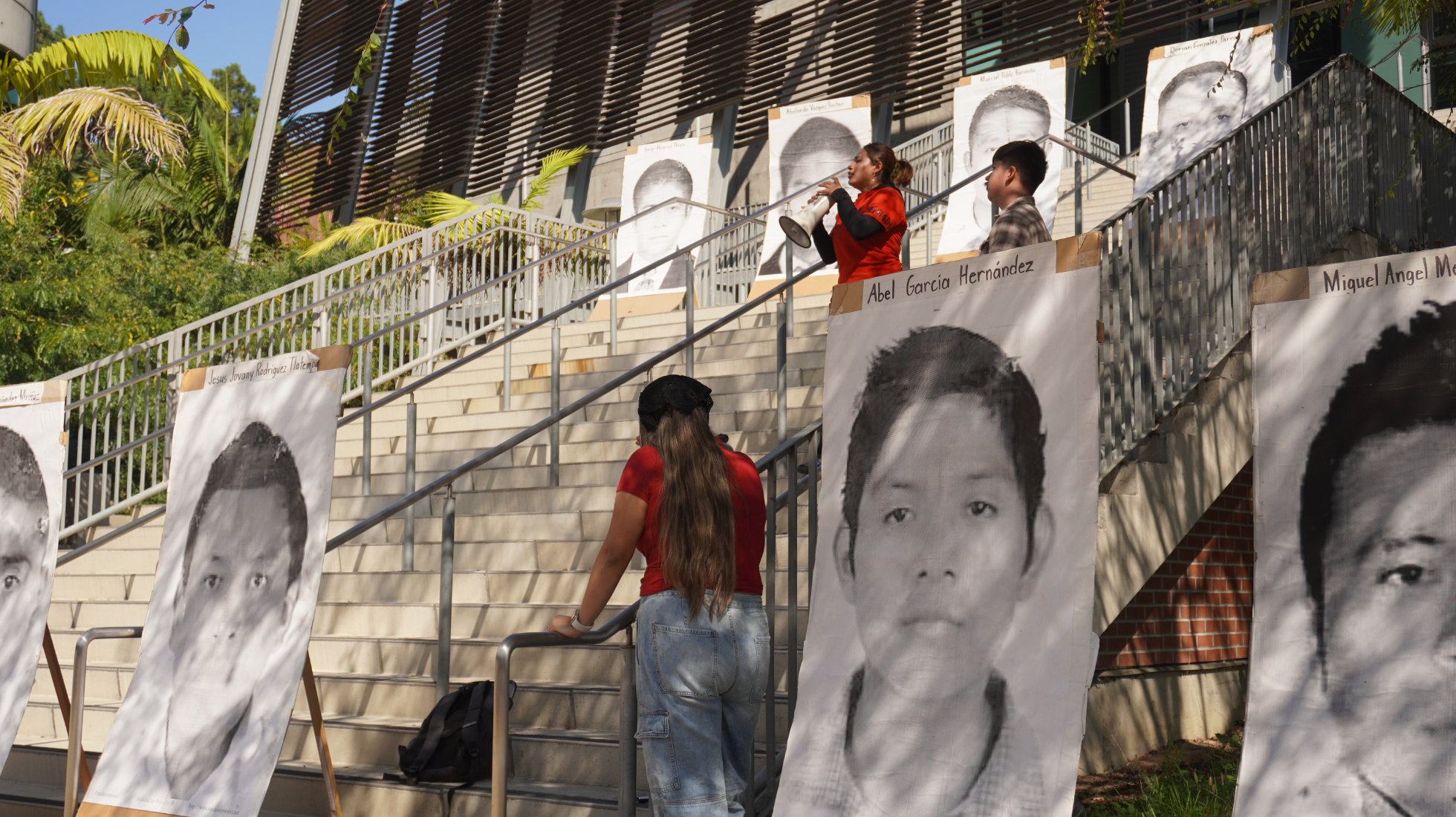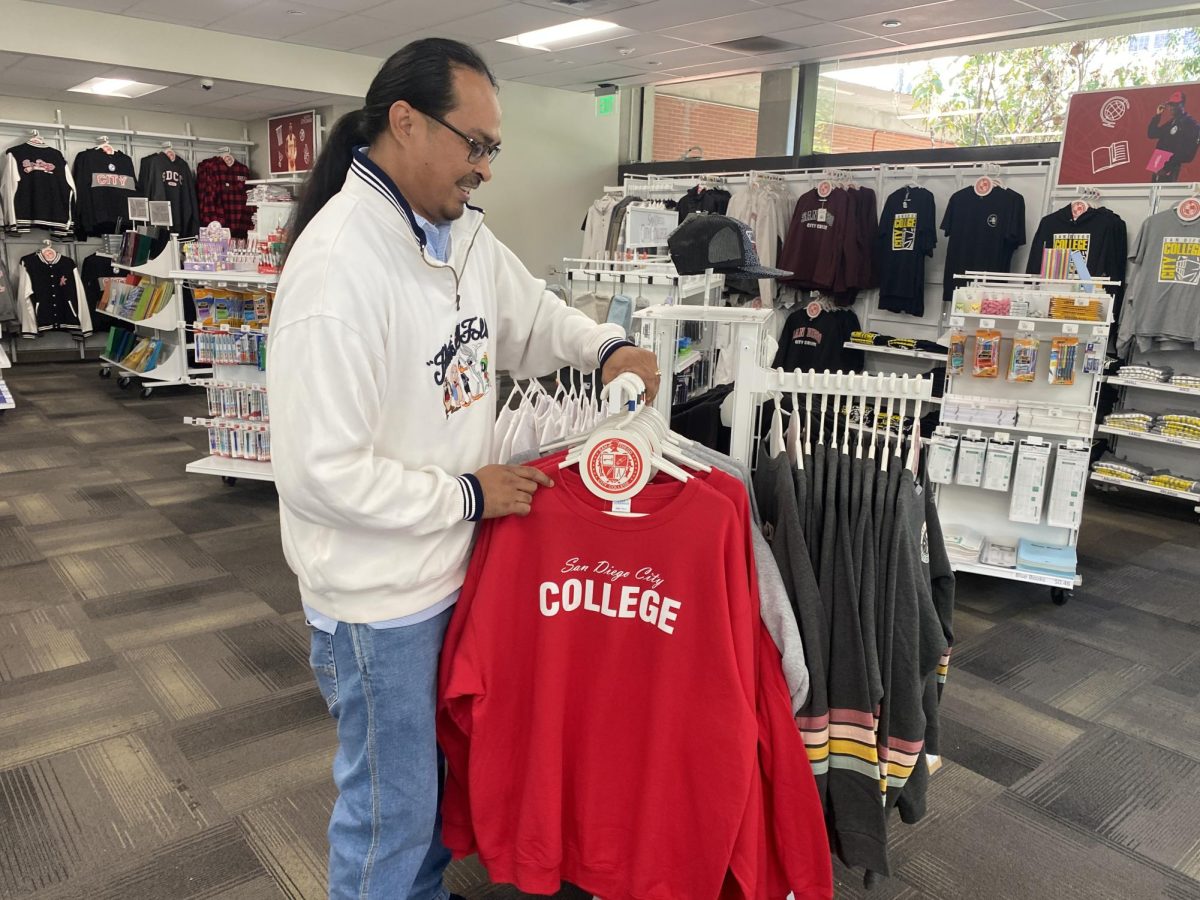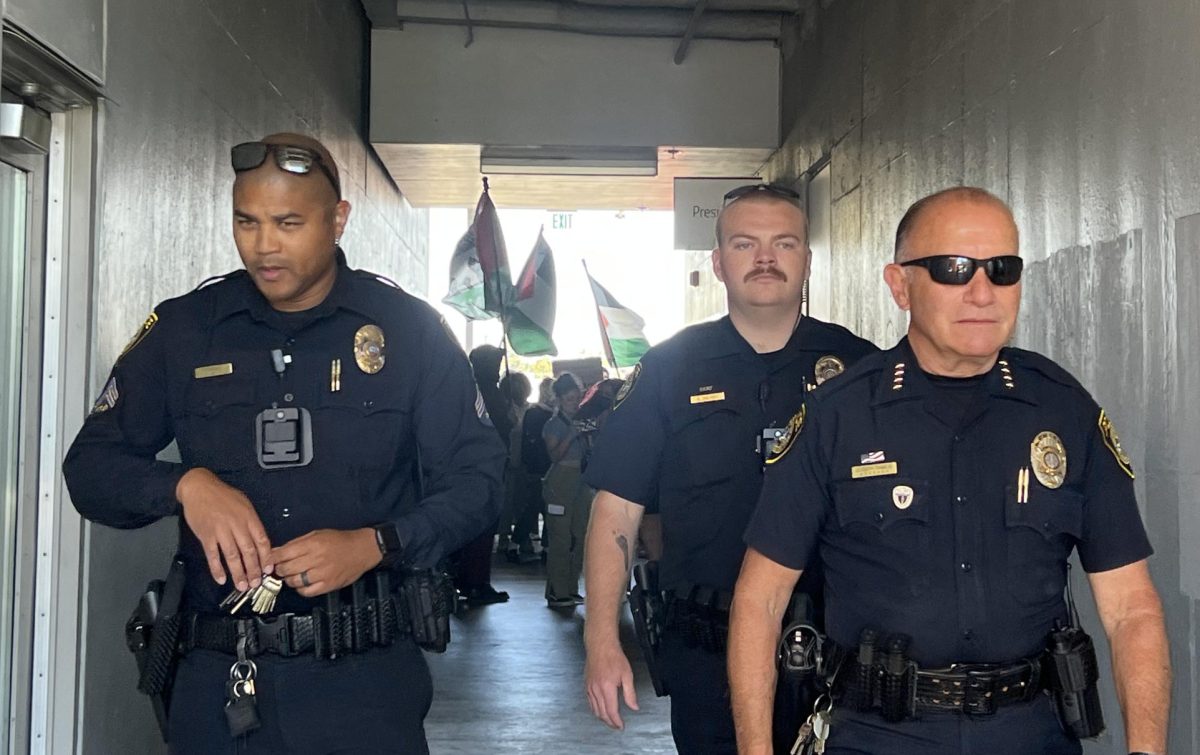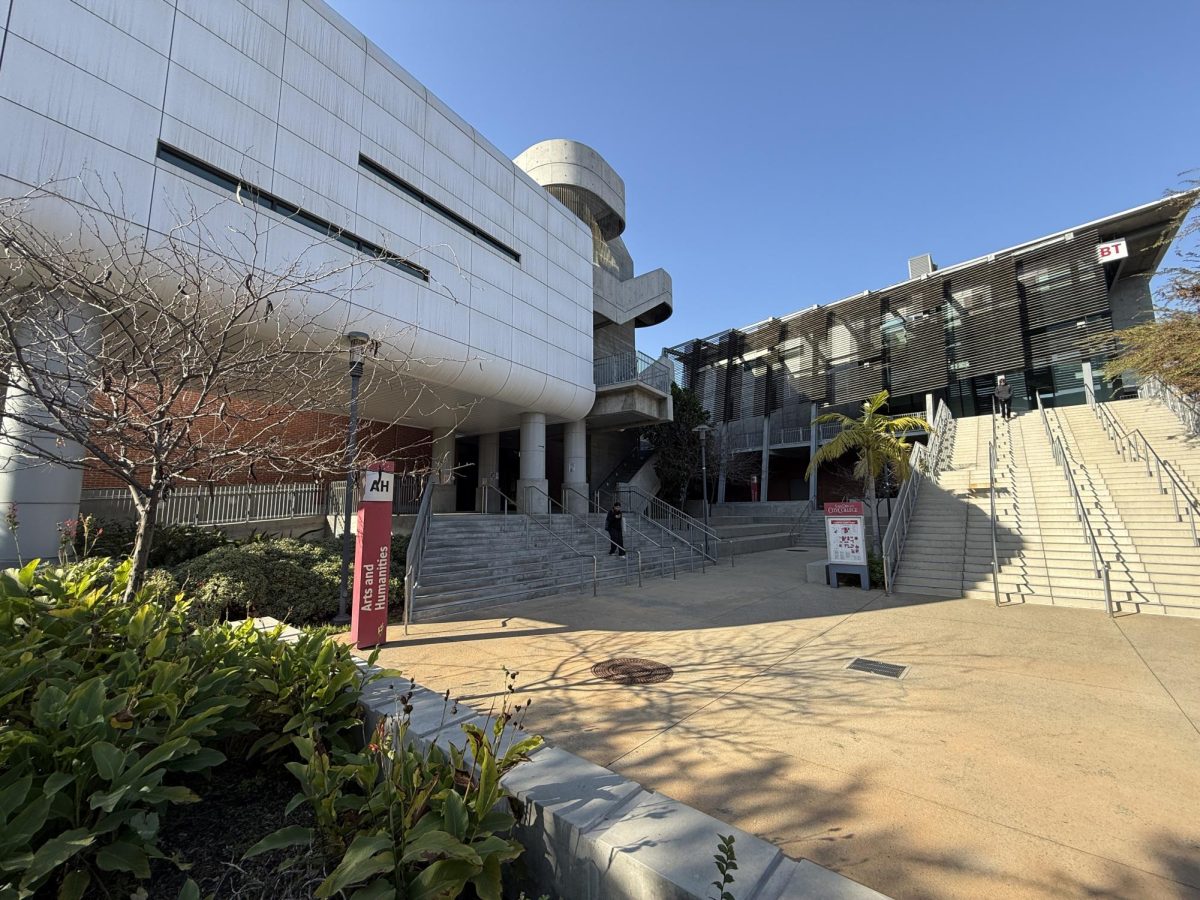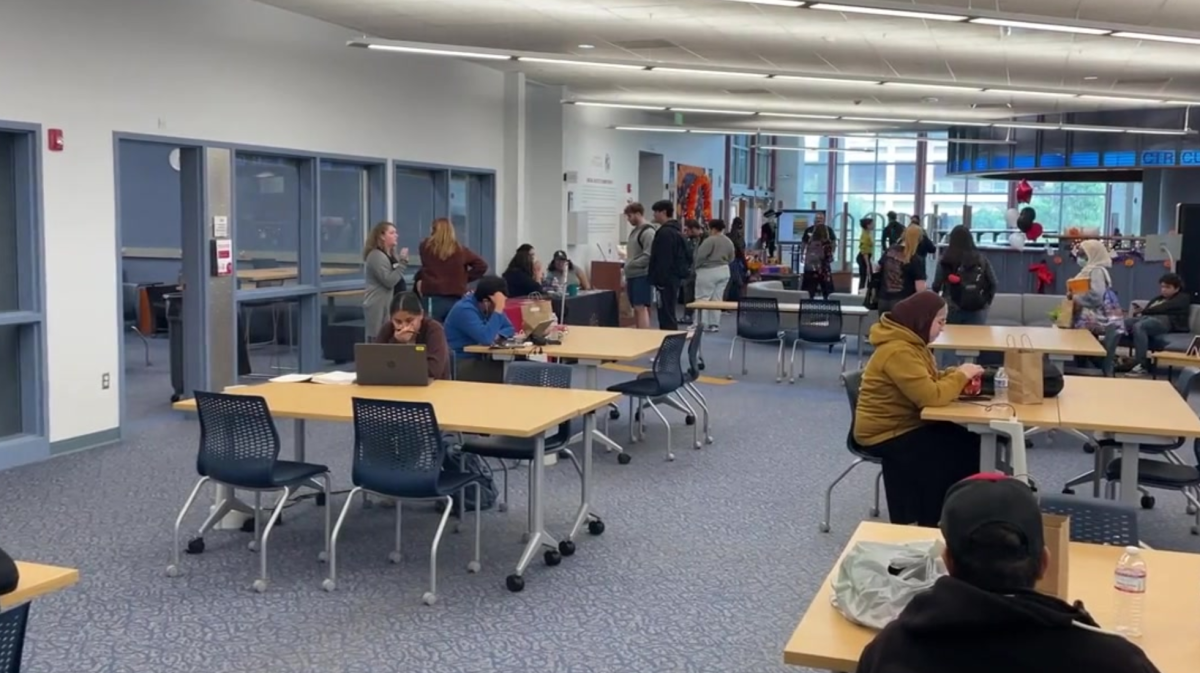Nine years after 43 prospective teachers were disappeared in Iguala, Mexico, members of M.E.Ch.A of San Diego City College rallied on campus on Sept. 26 to commemorate the events that continue to inflame the local and international community who seek justice.
Organizers gave poignant speeches and led thematic chants while the faces of some of the disappeared students were displayed on six-foot-tall placards along the event space outside the AH building on City’s campus.
White t-shirts with the names of the missing were strung up across the rally space.
“It’s important for us as students to realize that our education is revolutionary,” said Julio Cedillo, academic coordinator for M.E.Ch.A. “Students were practically murdered for having social justice embedded in education, and us as M.E.Ch.A., we stand against what happened.”
The mobilization began at the Mexican consulate in Downtown San Diego. There, the organizations 43 San Diego and Armadillos NUMM, composed of volunteers who search and rescue migrants along the U.S.-Mexico border, assemble on the 26th of every month to demand justice from the Mexican government for the unresolved disappearances.
At 7 a.m., M.E.Ch.A of City College members, along with organizers from the San Diego chapter of Association of Raza Educators, joined the monthly demonstration in commemoration of the 9th anniversary of the disappearances.
By 9:30 a.m., M.E.Ch.A brought the rally outside the AH building, filling the walkway and giving their appeals from the stairway that leads into campus.
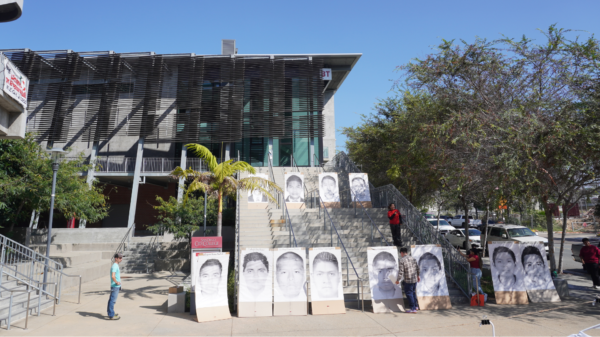
“Today marks the anniversary of those 43 students lost, who were stolen in Ayotzinapa, in Iguala, Mexico,” M.E.Ch.A co-chair Raul Solis said. “They were political students just like us.”
“We kind of see ourselves as those students, because it could have easily been us,” Solis said, who is also a Chicano studies and computer science major. “Everything that we do is always targeted and tried to be silenced by the state.”
At one point, a speaker named all 43 of the Ayotzinapa students, to which the gathered crowd replied in succession with the customary “presente” response when acknowledging a missing or deceased person in Spanish.
On the night of Sept. 26, 2014, 43 students from the Ayotzinapa Rural Teachers’ College were traveling to Mexico City when the buses they commandeered were stopped by police.
The students were traveling to commemorate the 1968 Tlatelolco student massacre, but police set up roadblocks in the city of Iguala and shot at the buses.
The students were taken by the police, reported to have been handed over to the Guerreros Unidos drug cartel and disappeared.
The events of the mass kidnapping remain unknown and the version presented by the Mexican government remains disputed.
New evidence in the form of text messages shows deep connections between cartels and local government officials.
After several iterations of government investigations into the incident, the case is roundly regarded to be an enormous cover-up, according to audits and independent reports scrutinizing the investigations.
Nicole, a second-year Chicano studies and sociology major, who said she doesn’t disclose her last name for “security purposes,” spoke to the crowd at length on the stairs facing the demonstration space.
“This is our way of standing in solidarity with the students and reminding people that this mission isn’t over,” Nicole said.
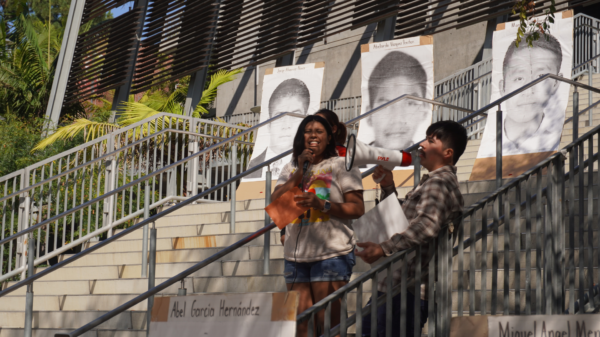
Faculty from the Chicano Studies department were present, as well as members from campus organizations like ASG and Umoja who gave speeches to the crowd.
The common discourse given to the public by both groups emphasized solidarity with the missing students and unity among campus organizations.
City Times Media observed between 40-80 participants gathered who circulated at different times throughout the rally.
Some students who were walking onto campus joined the demonstration to listen to the various speeches given by organizers.
Cousins Lizbeth Valderrama and Denisse Nogueda, who both have family from the Mexican state of Guerrero, were on their way to class when they came across the crowd and large poster boards that displayed the faces of some of the missing students.
“If I wouldn’t have came here today I wouldn’t know about these tragedies that are happening in my parent’s hometown,” said Nogueda, a social work major.
Beyond connecting their own ideals and struggles with those that the 43 Ayotzinapa students undertook the day they disappeared, organizers with M.E.Ch.A aimed to continue raising awareness and to keep attention on the case in its ninth year of being obstructed and unresolved.
“We just want to make sure that those cries of (the) families are heard,” Solis said.

